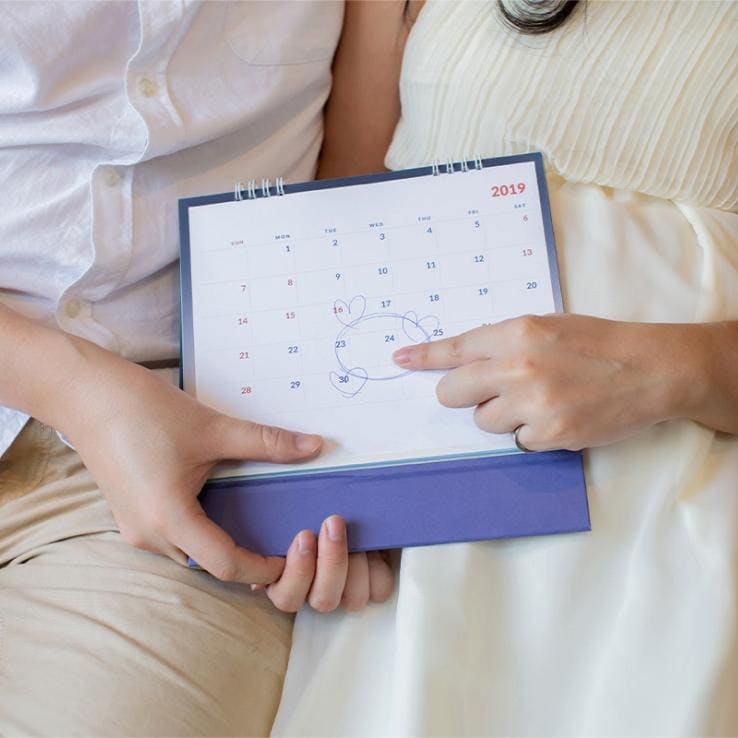How you and your partner can prepare for pregnancy
Whether you and your partner are trying to get pregnant for the first time or are hoping for a new addition to your family, the planning journey is a great opportunity to focus on your health and wellbeing.
From eating a balanced diet and regularly exercising to getting a medical check-up, we walk you through pre-conception tips and advice to help you both prepare.
Find out more:
Ask a doctor for pre-conception advice
A pre-conception health check-up can give you and your partner peace of mind and help you understand the lifestyle changes you could make to improve your chance of conceiving.
At your partner’s appointment, the doctor will check if their vaccinations are up to date, explain the benefits of taking a pregnancy supplement – such as Elevit Pre-conception & Pregnancy – and discuss any health conditions, such as diabetes, high blood pressure, heart problems or epilepsy.
You may also decide to do reproductive carrier testing for you and your partner.
You and your partner will likely build a trusting relationship with your GP or practice throughout pregnancy and after the baby is born, and this access to medical advice can also help support your overall health.
If you smoke, your doctor can share advice and treatments to help you quit and, if relevant, help you understand how eating a balanced diet and regularly exercising can optimise your sperm health.
Adopt healthy habits together
Eating a healthy diet can support your partner’s planning journey, so add plenty of fruit and vegetables to your shopping basket and take the time to prepare some delicious nutrient-rich recipes together.
By getting into the habit of selecting ingredients packed with vitamins and minerals, you’ll be in a great place to support your partner’s increased nutritional needs throughout their pregnancy.
Now’s also a good time to check your body mass index (BMI) by entering your height and weight into an online BMI calculator. If either of you feel you need to lose or put on weight to help improve the chance of conception or support a healthy pregnancy, speak to your doctor.
And whether you want to work out together or prefer to follow your own routine, aim for at least 30 minutes of moderate-intensity exercise most days of the week to boost your overall health. This can include a brisk walk, cycling or swimming.
Discover how supplements can help
Your partner might find it tricky to get the recommended daily intake (RDI) of folic acid (folate) and other nutrients, iodine, iron, vitamin D etc. required during pre-conception and pregnancy through diet alone. By taking a prenatal multivitamin, such as Elevit Pre-conception & Pregnancy, for at least one month before trying to become pregnant, your partner can ensure they’re getting the right amount. Adding Elevit DHA & Choline Pregnancy to their supplement routine can also help meet their increased nutritional needs.
Men can take a pre-conception supplement, such as Menevit Pre-conception Sperm Health. This specially formulated blend of antioxidants and anti-inflammatory nutrients can help boost sperm production and motility. It’s most effective when taken three months before trying for a baby.

Pregnancy
From what to eat, how to exercise and how to keep track of all those important milestones, you can find answers and support here.












